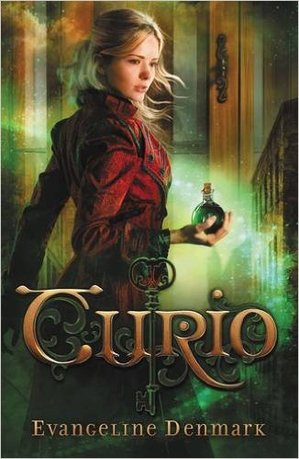 Interview by Brock Eastman Featuring Curio “From the moment I slipped into the pages of Curio I was transported. Evangeline Denmark has written an intricately webbed story that will make your heart race and your mind thrill. But, be prepared. The Mad Tock, powerful chemists, and wicked porcies roam these pages. Danger, adventure, romance, and imaginative settings galore! I haven’t been so enthralled since my childhood favorites of The Labyrinth and The Neverending Story.” ~Brandy Vallance, award winning author of The Covered Deep Evangeline Denmark isn’t exactly new to the world of speculative fiction. In fact, she grew up in it. The daughter of bestselling fantasy novelist Donita K. Paul, Evangeline is quick to credit her mother for fostering a love of the written word. “She read to my brother and me every night—everything from picture books to the Bible to The Hobbit.” Mother and daughter collaborated on two picture books, The Dragon and the Turtle and The Dragon and the Turtle Go on Safari, published by Waterbrook Press, the Penguin Random House division that published Donita K. Paul’s popular DragonKeeper Chronicles series. I’ve come to know Evangeline through book signings and school literacy events in the town we both call home. She and her mother seem to attract fantasy fans, enthusiastic readers, and budding writers eager to discuss the ins and outs of fiction. The excitement is mutual as the two eagerly encourage students and readers of all ages to delve deep into literary pursuits. I sat down with Evangeline at Jives Coffee Lounge, a Colorado Springs café decorated in the Steampunk genre aesthetic, heavy on the industrial feel with exposed copper piping, metal cage light fixtures, and a gear-shaped stage. The ambiance was perfect to discuss Evangeline’s debut Young Adult Steampunk Fantasy novel, Curio. Brock: Give us one fact about each main character that no one else knows. Evangeline: Grey’s brother, Banner, means everything to her. Before Whit started working in the mines, he had never been out of Mercury City. Blaise’s father is part of a matrilineal society. (purposefully vague *waggles eyebrows*) Brock: In three sentences, what is this book about? Evangeline: To avoid the reaches of the corrupt Chemist Council, Grey Haward escapes into an enchanted curio cabinet in her grandfather’s store. Inside the cabinet, Grey discovers a world of living porcelain and clockwork people on the verge of revolution and becomes embroiled in their fight. To get home, she must find the only other human, a boy disguised as the Mad Tock, whose secrets stretch from one world into the next. Brock: Do you outline the entire book before starting, or do you write as you go and let the characters take control of the story? Evangeline: I have an idea where the story is going but I don’t outline. I like to be surprised. Or rather, I don’t have any choice but to be surprised. That’s how my brain works. Brock: So why the change from picture books to Young Adult novels? Evangeline: Actually novels have been my focus since I began pursuing writing for publication. The Dragon and Turtle books were fun opportunities that arose thanks to my mom’s dragon-loving fan base, but the stories that find their way into my brain are usually better suited to a longer format and an older audience. Brock: What is the biggest challenge involved in writing for the Young Adult market? Why do you enjoy it? Evangeline: Knowing the struggles and pressures young people face and wanting to do right by them. Wanting to say with my words and my characters’ experiences, “I see you. I know what it is to feel that you don’t belong, that you have to hide who you truly are, and that if anybody knew the real you, they’d turn away.” One of fiction’s most powerful tools is the capacity to let a reader know she or he is not alone. Someone else has felt the same way. As for what I enjoy most, it’s the freedom of emotion that comes with writing in the Young Adult genre. As adults we kind of lock things away because we have to function. And okay, that’s necessary to some extent. Otherwise we’d be like Sadness in Pixar’s Inside Out, flat on our backs with one foot in the air, moaning, “I’m too sad to walk.” But the point of that movie, and the point I’m trying to make, is that there’s strength in acknowledging our emotions and how they shape who we are. YA provides a canvas for exploring all the feels. Brock: What appeals to you most about steampunk as a genre? Evangeline: At first it was the aesthetic. Who doesn’t like corsets, top hats, and goggles? And I enjoyed the creative take on history and outside-the-mold characters. But it’s the punk aspect that hit home with me. Anything “punk” whether we’re talking punk rock or cyberpunk, is going to have an element of social challenge. It’s a sharpened viewpoint that leans toward cynicism and anarchy, but can also uncovers inequality and injustice, which is as necessary now as it was when Charles Dickins wrote. Brock: Can you give us a brief summary of what the book is about? Evangeline: To avoid the reaches of the corrupt Chemist Council, Grey Haward escapes into an enchanted curio cabinet in her grandfather’s store. Inside the cabinet, Grey discovers a world of living porcelain and clockwork people on the verge of revolution and becomes embroiled in their fight. To get home, she must find the only other human, a boy disguised as the Mad Tock, whose secrets stretch from one world into the next. Brock: A large portion of the book takes place inside this enchanted cabinet. How did you come up with that idea? Evangeline: I remember the exact moment when Curio began. I was driving and the word curio popped into my head. I instantly fell in love with the concept of curios and curio cabinets and knew I had to write a story about them. From there I moved on to thinking about the word curiosity and came up with the idea of a human girl trapped in a curio cabinet who would be a curiosity to the denizens of that world—porcelain and clockwork creatures. Brock: Tell us about the main characters. Who are they? What makes them unique? Evangeline: Grey Haward is painfully aware that her height and stature draw attention in her home, Mercury City. What she doesn’t understand is why she’s compelled to intervene when her best friend is charged with breaking the law or why a strange mark shows up on her skin the morning after her rebellion. Grey’s family is hiding a secret, and the truth of Grey’s identity will change her world and another. Whit Bryacre is only a few months out of school and working in the mines when his attempt to rescue Grey lands him in trouble for breaking Mercury’s harsh laws. Angry and afraid, Whit embarks on a path of resistance that could cost him his life. Blaise Amintore has been trapped for one hundred years. He spends his time plotting revolution against the cruel ruling class of porcelains and fixing broken tocks and porcies desperate enough to seek help from the Mad Tock. But when another human arrives in Blaise’s world, both the revolution and Blaise’s personal crusade kick into high gear. Brock: Although there are two male point-of-view characters, Grey Haward is clearly the protagonist. What are some critical aspects of crafting a heroine for you? Evangeline: I have a passion for seeing girls and women embrace the many aspects of who they are, not just the roles that have been traditionally assigned to them. As human beings we have such varying gifts and strengths, and to deny someone’s contribution to the world based on their gender is ridiculous and harmful. Grey starts out in a very repressed environment where women are restricted and then finds herself in a place where women are objectified. Both societies are deeply flawed. When Grey steps into the destiny that is in her blood, she throws off the false identity constructs that have been forced on her and becomes the justice-minded warrior she was meant to be. Brock: Let’s talk a little about the process of writing Curio. Any certain research required for the book, or is it all from your imagination? Evangeline: I researched mining, alchemy, and Colorado’s early days as a territory. I also watched some of Jay Leno’s YouTube videos about steam cars and rubbed my own ceramic dishes together (gently!) to hear how porcie “applause” would sound. Brock: You mentioned the real history of Colorado. How much leeway did you give yourself with facts? Evangeline: Curio and the prequel novella, Mark of Blood and Alchemy, take place in alternate history, so a real time and place in our world, but with completely made-up elements and events that have affected the world. Steampunk and Clockpunk lend themselves to wild liberties with such small matters as facts and reality. I had great fun making gauntlet writers—the equivalent of tablets in the early 1900s American West—and a time machine in Mark of Blood and Alchemy that consists of a water clock and a funicular. Brock: Tell us a little more about the prequel? Evangeline: Mark of Blood and Alchemy is available now as an ebook. The novella gives the origins of the Chemists and the Defenders and follows Grey’s grandfather, Olan, as a young man fleeing a plague and tangling with a group of “magickers.” It’s short, full of action, intrigue, romance, and some fun clockpunk devices. Brock: What is your favorite genre to write for? Evangeline: I love fiction with supernatural elements, whether it’s YA, romance, or steampunk. Brock: How does it feel to have your work published? Evangeline: I’ve had picture books published, but writing novels was always my goal. For a long time I struggled with trying to fit my stories into a certain mold that I thought was expected of me. This was a terrible idea, and my novels kept spilling over out of the box and getting wild and weird. When I finally let go of those expectations and embraced the wanderings of my imagination, I wrote the project that got a contract. It feels amazing to see my name on the cover of a book that reflects my creativity unleashed. Brock: Finally, how do you believe this story relates to the lives of readers? Evangeline: Questioning the way things work, whether that’s a scientific principle or a political system, is how we move forward as individuals, as societies, and as a species. It’s hard work and it’s often painful, but it must be done. When we wrestle with the tough questions—not only in our personal experience but on behalf of others—it becomes harder and harder to ignore things like poverty, injustice, and inequality. I believe teens have a deep capacity for empathy and tapping into that awareness is powerful. I hope Curio helps my readers question the status quo and connect with their compassion. Brock: Thank you Evangeline, for giving us an inside look only an author can. I’ve been following Donita Paul’s career for many years, and I have no doubt Evangeline’s career will be equally filled with amazing worlds, dazzling characters, and stories to awaken our imaginations. 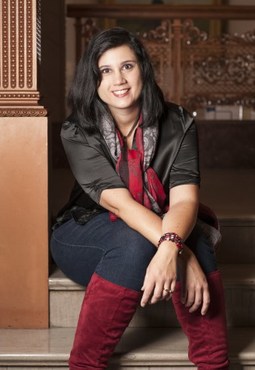 Author website: EvangelineDenmark.com Author Facebook: facebook.com/AuthorEvangelineDenmark/?fref=ts Author Twitter: twitter.com/EvangelineD Author Pinterest: pinterest.com/evangelineden/ Author Instagram: instagram.com/evangelinedenmark/
0 Comments
Leave a Reply. |
Follow meArchives
May 2024
Categories
All
|
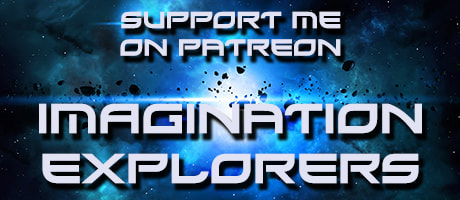
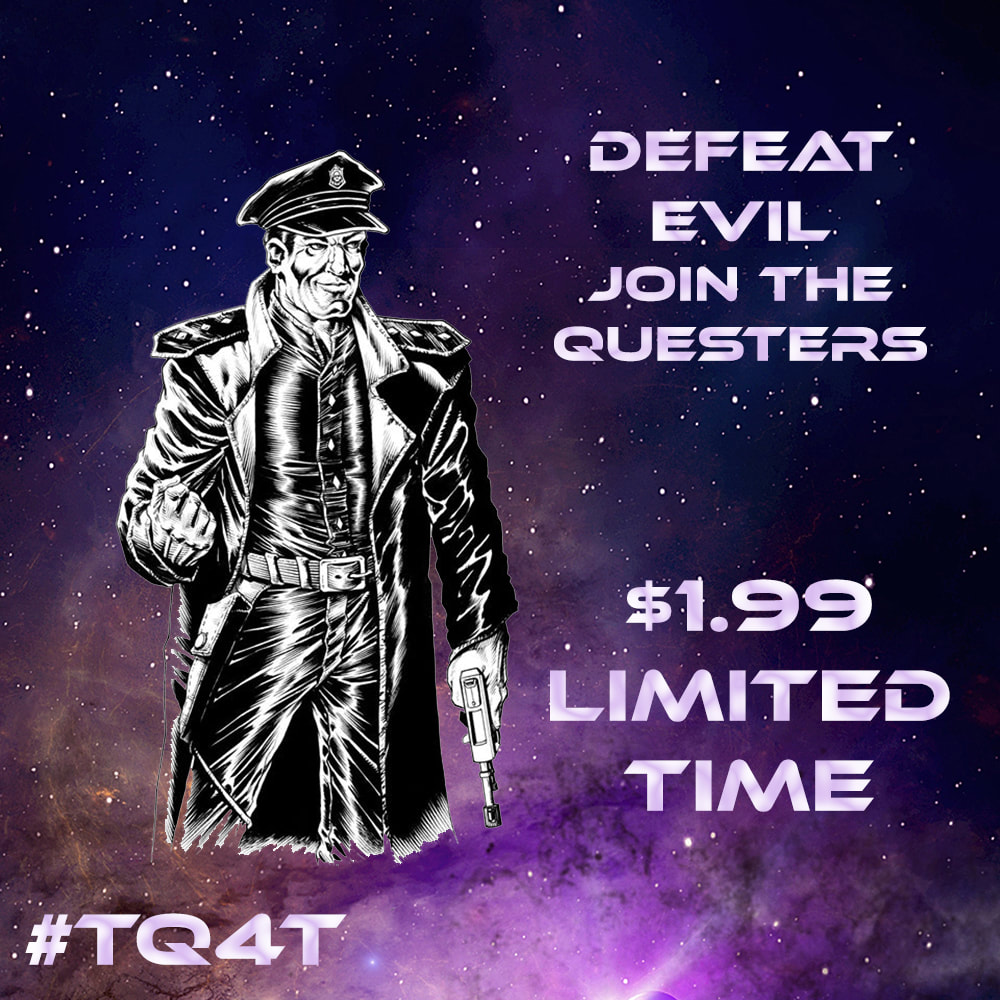
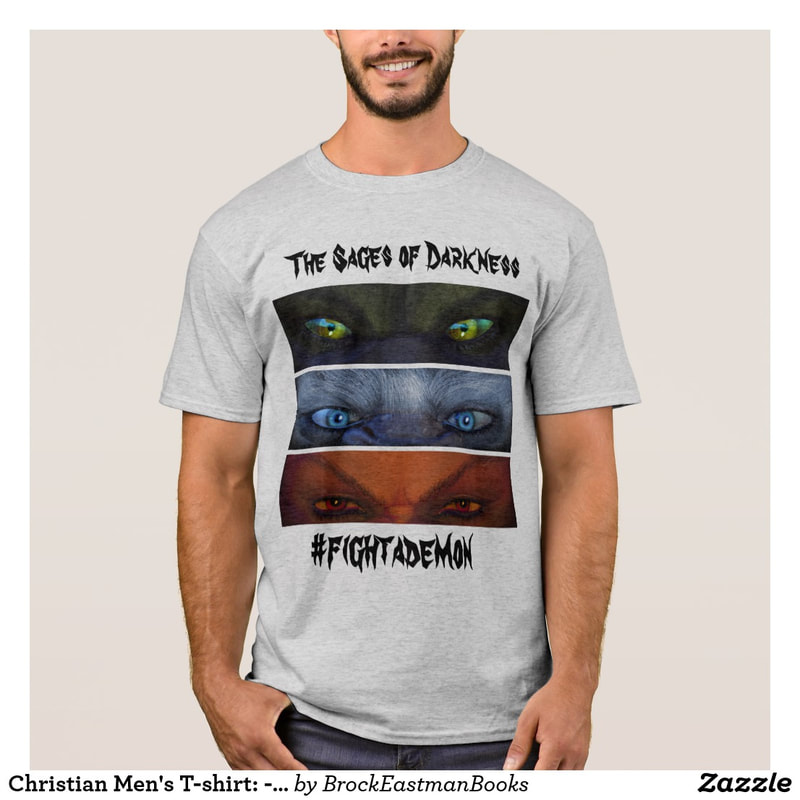

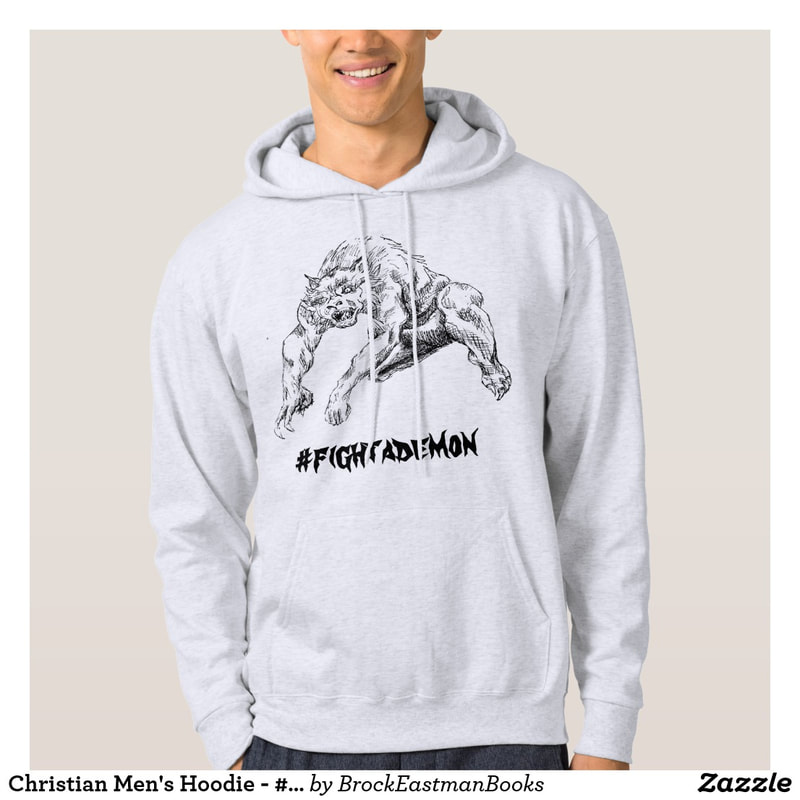
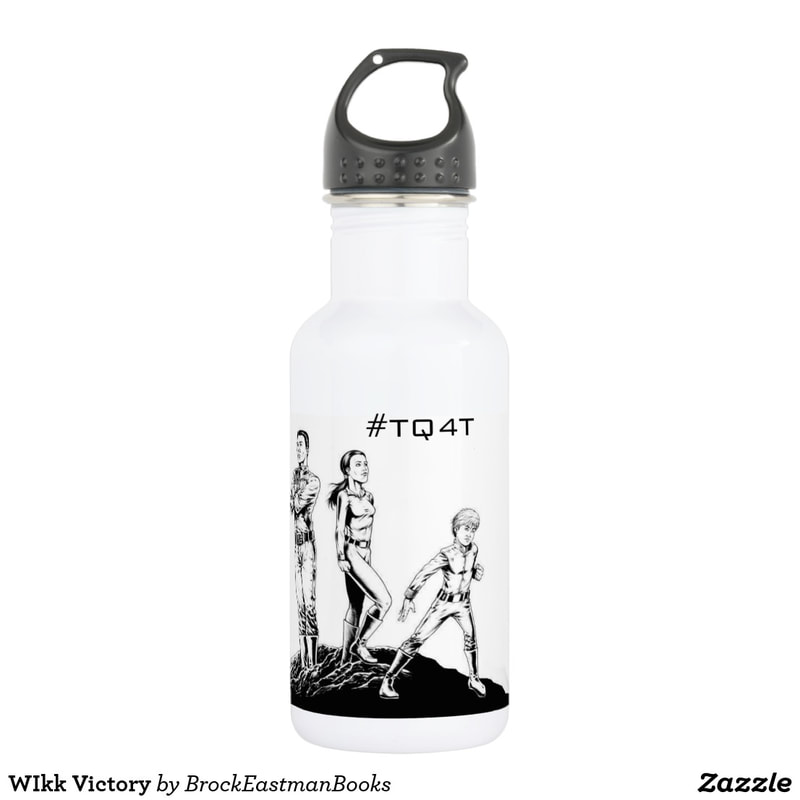
 RSS Feed
RSS Feed